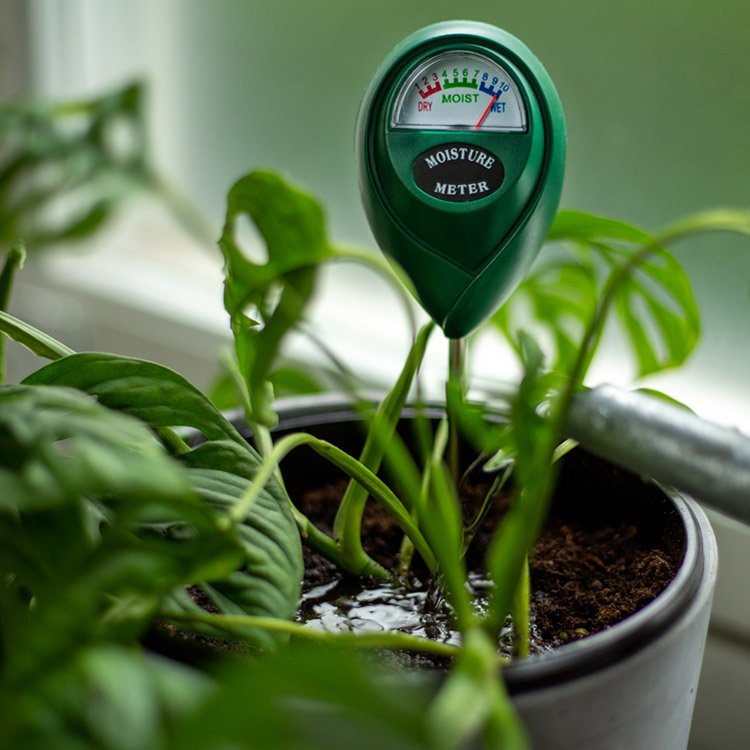How to Make Use Of a Moisture Meter to Find Concealed Water Damages in Your Residential property
How to Make Use Of a Moisture Meter to Find Concealed Water Damages in Your Residential property
Blog Article
The Ultimate Overview to Moisture Meters: A Comprehensive Summary and How They Can Save You Cash
In the realm of structure upkeep, construction, and various industries, the importance of accurately determining dampness degrees can not be overstated. Wetness meters function as indispensable tools in discovering and checking moisture web content in products, helping in protecting against pricey damages and guaranteeing the top quality of items. Understanding the nuances of various kinds of wetness meters, their applications, and the prospective cost-saving advantages they provide can be a game-changer for professionals and companies alike. Discovering how these devices can not only enhance processes however likewise add to financial savings is a journey worth starting.
Sorts Of Dampness Meters
Various kinds of wetness meters are offered for various applications in numerous sectors. One typical type is the pin-type moisture meter, which determines the electric resistance in between 2 pins inserted into a product. This kind is ideal for timber, drywall, and various other building materials. Pinless moisture meters, on the other hand, usage electro-magnetic sensor plates to scan a larger area without triggering damage to the product's surface. Moisture Meter. These meters are ideal for rapidly evaluating dampness levels in large areas such as floors and walls.

Infrared dampness meters determine the thermal buildings of a product to identify its moisture web content non-invasively, making them valuable for applications where pin or pinless meters might not be appropriate. Comprehending the various types of wetness meters offered can assist industries pick the most appropriate device for their certain wetness dimension demands.

Benefits of Using Moisture Meters
Wetness meters provide very useful advantages in properly analyzing and monitoring dampness levels in diverse products and environments (Moisture Meter). One of the key benefits of using moisture meters is the avoidance of potential damages brought on by excess moisture. By spotting and dealing with high dampness degrees early on, dampness meters help to protect against mold growth, rot, and architectural damage in buildings, conserving both money and time on repairs. Furthermore, moisture meters help in making certain the top quality of materials throughout construction or manufacturing procedures. By properly gauging moisture material, these devices assist maintain the stability of timber, drywall, concrete, and other products, minimizing the danger of issues or failures.
Additionally, utilizing dampness meters can bring about boosted energy performance. By identifying areas with high wetness levels, such as leakages or poor insulation, modifications can be made to enhance energy preservation and minimize utility expenses. In agricultural setups, wetness meters play an essential role in maximizing plant returns by enabling farmers to keep an eye on dirt wetness degrees and make educated irrigation choices. Generally, the benefits of making use of moisture meters extend across numerous markets, giving cost-efficient remedies and advertising much better quality control methods.
Just How to Choose the Right Dampness Meter
When selecting a wetness meter, it's crucial to guarantee that the meter is appropriate for the details product you will be testing. Different products have varying electric properties that can influence Resources dampness analyses, so selecting a meter created for your material is vital for exact results. By meticulously evaluating these factors, you can choose a moisture meter that meets your needs and supplies accurate dampness measurements for your projects.
Proper Techniques for Dampness Meter Use

Expense Savings Via Moisture Meter Applications
How can the critical utilization of wetness meters cause significant cost savings across different industries? Dampness meters play a critical duty in expense savings by preventing prospective damage and making certain quality control in different industries. In the farming sector, dampness meters help in figuring out the optimum time for harvesting plants, protecting against over-drying or excess moisture that can influence the final product's quality. This specific monitoring helps farmers avoid unneeded losses and maximize their yield.
Likewise, in building and construction, moisture meters help prevent expensive problems by detecting wetness degrees in building materials, such as timber or concrete, which can bring about architectural concerns otherwise dealt with immediately. By identifying trouble areas at an early stage, service providers can take rehabilitative actions to avoid substantial fixings or replacements, ultimately conserving time and cash.
Additionally, in the food processing market, dampness meters are crucial for monitoring item high quality and making certain conformity with safety guidelines. By properly measuring wetness web content in food items, manufacturers can prevent spoilage, maintain freshness, and lower waste, leading to considerable expense financial savings. Overall, the calculated application of moisture meters is a beneficial investment that can result in substantial price reductions and boosted effectiveness across various sectors.
Final Thought
In verdict, dampness meters are beneficial tools for discovering and measuring dampness degrees in various materials. By making use of the ideal wetness meter and adhering to correct techniques, individuals can efficiently additional hints avoid costly problems created by excess dampness.
Dampness meters offer as vital tools in detecting and monitoring moisture content in materials, aiding in stopping costly damages and guaranteeing the high quality of items. Infrared moisture meters gauge the thermal buildings of a material to establish its dampness material non-invasively, making them valuable for applications where pin or pinless meters might not be ideal.Moisture meters offer very useful advantages in properly analyzing and keeping an eye on wetness levels in diverse products and atmospheres. In agricultural settings, moisture meters play an important function in enhancing crop returns by enabling farmers to keep an eye on dirt dampness levels and make educated watering decisions.In conclusion, wetness meters are valuable devices for determining and identifying dampness levels in various materials.
Report this page